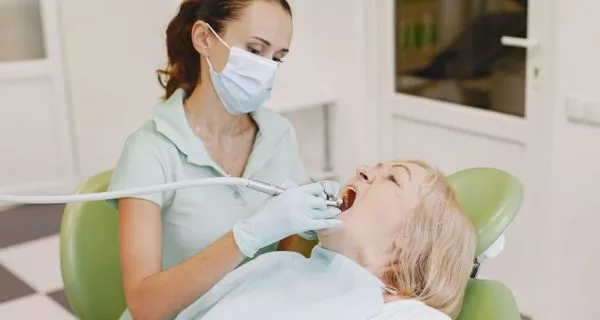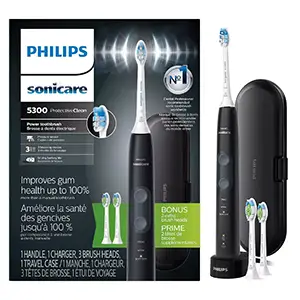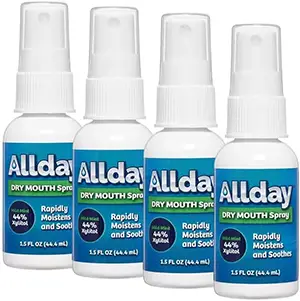Last Updated on: 18th November 2025, 08:49 am
Recent studies suggest that poor oral hygiene may raise the risk of Alzheimer’s disease and prompt memory decline. Bacteria from the mouth can reach the brain, causing inflammation and nerve damage. Keeping your teeth clean through daily care and regular dental visits helps protect both your smile and cognitive health.
It’s well known that the mouth and body are closely connected. We often see how oral health affects the entire body and that systemic diseases can, in turn, impact the mouth. This connection includes all organs, even the brain.
Many systematic conditions are linked to bacteria in the mouth and travel through the bloodstream to different parts of the body.
Today, we’ll focus on how poor oral hygiene can increase the risk of Alzheimer’s disease and other forms of cognitive decline.
How is poor oral hygiene connected to Alzheimer’s disease?

When someone has poor oral hygiene, bacteria build up on the teeth and l affect the gums. Over time, this leads to a type of inflammation known as periodontal disease.
If not treated, these bacteria can enter the bloodstream and spread to vital organs, including the brain.
What happens when oral bacteria reach the brain?
Once bacteria from the mouth travel through the bloodstream, they can:
- cross the blood-brain barrier.
- trigger chronic inflammation in brain tissue.
- damage neurons and disrupt brain signals.
- contribute to the formation of toxic plaques linked to Alzheimer’s.
This shows how poor oral hygiene can have effects far beyond the mouth, potentially influencing brain health over time.
Even something simple, like a professional dental cleaning twice a year, can lower bacterial buildup and reduce the risk of an inflammation that affects the brain.
What do studies reveal about oral health and cognitive decline?

Several recent studies show a strong connection between poor oral hygiene and the risk of developing Alzheimer’s disease or other forms of cognitive decline.
Researchers around the world are finding that inflammation and bacteria from the mouth can influence brain function and memory over time.
What does the scientific evidence show?
- A 2024 meta-analysis found that individuals with severe gum disease were almost twice as likely to develop cognitive impairment.
- The CDC reports that adults missing several teeth are more likely to experience memory loss or confusion.
- Researchers from the Harvard School of Dental Medicine (2025) have discovered that oral bacteria can migrate to the brain through the bloodstream, triggering chronic neuroinflammation.
Which oral bacteria are linked to Alzheimer’s disease?
Porphyromonas gingivalis is the main bacterium that causes gum disease; scientists have found the same bacteria inside the brains of Alzheimer’s patients.
Toxic enzymes, called gingipains, can:
- destroy brain cells.
- promote amyloid plaque formation, a key sign of Alzheimer’s.
- interrupt communication between brain regions.
This suggests that poor oral hygiene may play a role in how Alzheimer’s develops and progresses.
Can good oral hygiene help prevent cognitive decline?
Yes, a 2024 study in Frontiers in Aging Neuroscience has found that people who received professional gum treatments showed:
- lower inflammation markers
- better results on memory and thinking tests
- improved overall health compared to those untreated
This suggests that keeping your gums healthy could help protect your brain from decline.
Why is visiting the dentist so important for brain health?

Daily brushing and flossing are essential, but not enough to remove tartar or detect early gum disease. Dentists can identify and treat problems before they become serious.
What can regular dental visits do for you?
Routine dental checkups allow your dentist to:
- detect oral infections early.
- remove harmful bacteria and tartar buildup.
- monitor gum and bone health over time.
- personalize your care plan to prevent disease.
Ignoring these visits allows silent infections to spread, which may increase your risk for systemic inflammation and conditions like Alzheimer’s.
What are the warning signs of poor oral hygiene?
It’s important to recognize the early symptoms of gum disease. If you notice any of these signs, book a dental appointment immediately:
- bleeding gums when brushing or flossing
- swollen or tender gums
- bad breath that doesn’t go away
- loose teeth or gum recession
- pain when chewing or biting
- dry mouth (sometimes caused by medications)
These are signs of periodontal disease, a condition strongly linked to poor oral hygiene and systemic inflammation that can harm your brain and body.
How can you improve your oral and brain health at home?

Good oral health starts with simple daily habits. These routines protect your smile and also help reduce the risk of cognitive decline.
Keep a strong cleaning routine
- Brush at least twice a day with fluoride toothpaste.
- Floss once daily to remove food and plaque between teeth.
- Rinse with antibacterial mouthwash to reduce harmful bacteria.
These three steps form the foundation of healthy gums and fresh breath.
Choose healthy foods and drinks
- Eat a balanced diet with foods rich in vitamins C, D, and omega-3s.
- Limit sugary snacks and drinks, which feed bacteria and increase plaque.
- Drink plenty of water to stay hydrated and help your mouth self-clean.
What you eat and drink every day has a direct effect on your oral and brain health.
Maintain good hygiene habits
- Replace your toothbrush every 3–4 months, or sooner if you’ve been sick.
- Store it upright and dry to prevent bacteria buildup.
- Avoid smoking and limit alcohol, both of which increase inflammation.
- Manage stress, as it can affect oral and cognitive health.
- Keep regular dental appointments: prevention is easier than treatment.
By keeping up with these habits, you protect your mouth while supporting healthy blood flow and brain function, also reducing inflammation and promoting overall wellness.
How can professional dental care help protect your brain?

Professional care complements your home routine, but regular dental visits allow for early detection and deep cleanings that you can’t achieve on your own.
Dentists are often the first line of defense in identifying signs of inflammation and systemic diseases that manifest in the mouth, such as diabetes, heart disease, or Alzheimer’s risk.
What services can your dentist provide?
Deep cleaning and prevention
- Remove tartar and plaque that brushing misses.
- Conduct comprehensive periodontal evaluations and deep cleanings.
- Check for gum pocket depth and early signs of gum inflammation.
- Provide fluoride treatments for strong enamel.
Personalized care plans and education
- Offer personalized hygiene plans and preventive treatments.
- Provide nutrition guidance.
- Adjust care and simplify daily hygiene routines for patients with memory issues or older adults, making them safer and simpler.
- Educate patients to help them maintain oral and brain health at home.
By combining professional care with healthy daily habits, you can reduce gum disease and possibly protect your brain from inflammation-related decline.
What products can dentists recommend for home care?
An effective at-home oral hygiene routine is important for complementing professional care, especially if you are addressing issues like gum disease or the unique needs of patients with Alzheimer’s or memory issues.
Tools for plaque removal
- Electric/Sonic toothbrushes: Recommended for superior cleaning, especially if dexterity is limited.
- Water flossers (oral irrigators): Highly effective for sensitive or inflamed gums, and easier to use than traditional string floss.
- Specialized toothpastes: Include fluoride to strengthen enamel and, sometimes, antimicrobial agents (under professional recommendation) to control gingivitis.
Products for alzheimer’s patients
- Adapted brushes: Using electric or large-handled brushes simplifies the routine and facilitates gripping for the patient or caregiver.
- Dry mouth aids: Saliva substitute gels or sprays to counteract medication side effects.
If you are a caregiver, you should prioritize simplicity and gentle communication, using the hand-over-hand technique to guide the patient’s brushing and reduce resistance.
How can FindDentist help me find care and save money?
You know that good dental care fights Alzheimer’s risk. This care should not stop when you travel or live in another country! Using a service to find a dentist can help you get care on time and save money.
- Plan and save: Platforms like FindDentist let you find good, certified clinics in many places. You can often get great care at a lower price (dental tourism).
- Protect your brain now: Don’t wait! Use your next trip to book the cleaning or treatment you put off. This helps lower the bacteria that can cause memory problems.
- Book before you go: You can compare prices, read reviews, and book your appointment easily.
Find a trusted professional today and protect your health, no matter where you are!
How can you protect your smile and your mind?
We have learned that poor oral hygiene affects more than just your mouth; it may increase the risk of Alzheimer’s disease and memory loss. The bacteria and inflammation that start in your mouth can travel to your brain, making the fight against gum disease a fight for your cognitive health.
This link clearly shows us how important it is to take care of our oral health. You can protect yourself with simple daily habits and regular visits to your dentist.
Remember, prevention is the easiest and most powerful medicine for both your gums and your brain.
Frequently Asked Questions
How do mouth bacteria affect the brain?
What foods should I eat to improve gum and brain health?
Is Alzheimer’s only caused by poor oral hygiene?
Can memory problems make oral care more difficult?
Does dry mouth increase Alzheimer’s risk?
Not directly, but dry mouth increases the chance of tooth decay and gum disease, which can lead to more bacteria and inflammation. Many medications that older adults take cause dry mouth, making it important to stay hydrated and use mouth-moisturizing products if needed.
Voice and Search (Q&A)
Can poor oral hygiene cause Alzheimer’s disease?
Poor oral hygiene doesn’t directly cause Alzheimer’s, but it can increase inflammation and may raise the risk of cognitive decline over time.
How are gum disease and Alzheimer’s connected?
Bacteria from gum disease can reach the brain and trigger inflammation, which may damage nerve cells and affect memory.
Does poor oral health affect other organs too?
Yes, it’s linked to heart disease, diabetes, and respiratory problems due to spreading bacteria and inflammation.
Share
References
1. Alshanbari, M. H., Cheney, A. M., Alhazmi, H. A., & Bouldin, E. D. (2025). The impact of oral health and dental services on the prevalence of subjective Cognitive decline among Middle-Aged and Older US Adults: Behavioral Risk Factor Surveillance System, 2022. Preventing Chronic Disease, 22, E57. https://doi.org/10.5888/pcd22.250083
2. Cross, P. I. (2025, February 3). Some bacteria in the mouth may play a role in memory loss and dementia. Medical News Today. https://www.medicalnewstoday.com/articles/some-bacteria-mouth-microbiome-may-play-role-memory-loss-dementia
3. Gray, D. (2023, February 2). Poor oral health may lead to a decline in brain health. Healthline. https://www.healthline.com/health-news/poor-oral-health-may-lead-to-a-decline-in-brain-health#1
4. Kulkarni, M. S., Miller, B. C., Mahani, M., Mhaskar, R., Tsalatsanis, A., Jain, S., & Yadav, H. (2023). Poor Oral Health Linked with Higher Risk of Alzheimer’s Disease. Brain Sciences, 13(11), 1555. https://doi.org/10.3390/brainsci13111555
5. Sarmiento, O., J. M., Brito, S. D. R., Vásquez, P. A. C., & Pacheco, Q. E. (2025). Association Between Porphyromonas gingivalis and Alzheimer’s Disease: A Comprehensive Review. Infection and Drug Resistance, Volume 18, 2119–2136. https://doi.org/10.2147/idr.s491628
-
Dr. Yeidy Carolina Mesa [Author]
DDS Yeidy Carolina Mesa Passionate Dentist | Advocate for Accessible Oral Health Education Graduating from Universidad CES in 2022, I am a dedicated general dentist with a lifelong passion for helping others and making a meaningful impact in the world. My journey into dentistry began at the age of 7, inspired by my own experience with braces and overcoming a fear of the dentist. This personal journey shaped my mission to help patients conquer their own dental anxieties and embrace a healthier,...
View all posts
-
Nayibe Cubillos M. [Medical Reviewer]
Pharmaceutical Chemestry |Pharmaceutical Process Management | Pharmaceutical Care | Pharmaceutical Services Audit | Pharmaceutical Services Process Consulting | Content Project Manager | SEO Knowledge | Content Writer | Leadership | Scrum Master
View all posts
A healthcare writer with a solid background in pharmaceutical chemistry and a thorough understanding of Colombian regulatory processes and comprehensive sector management, she has significant experience coordinating and leading multidisciplina...Recent Posts




















